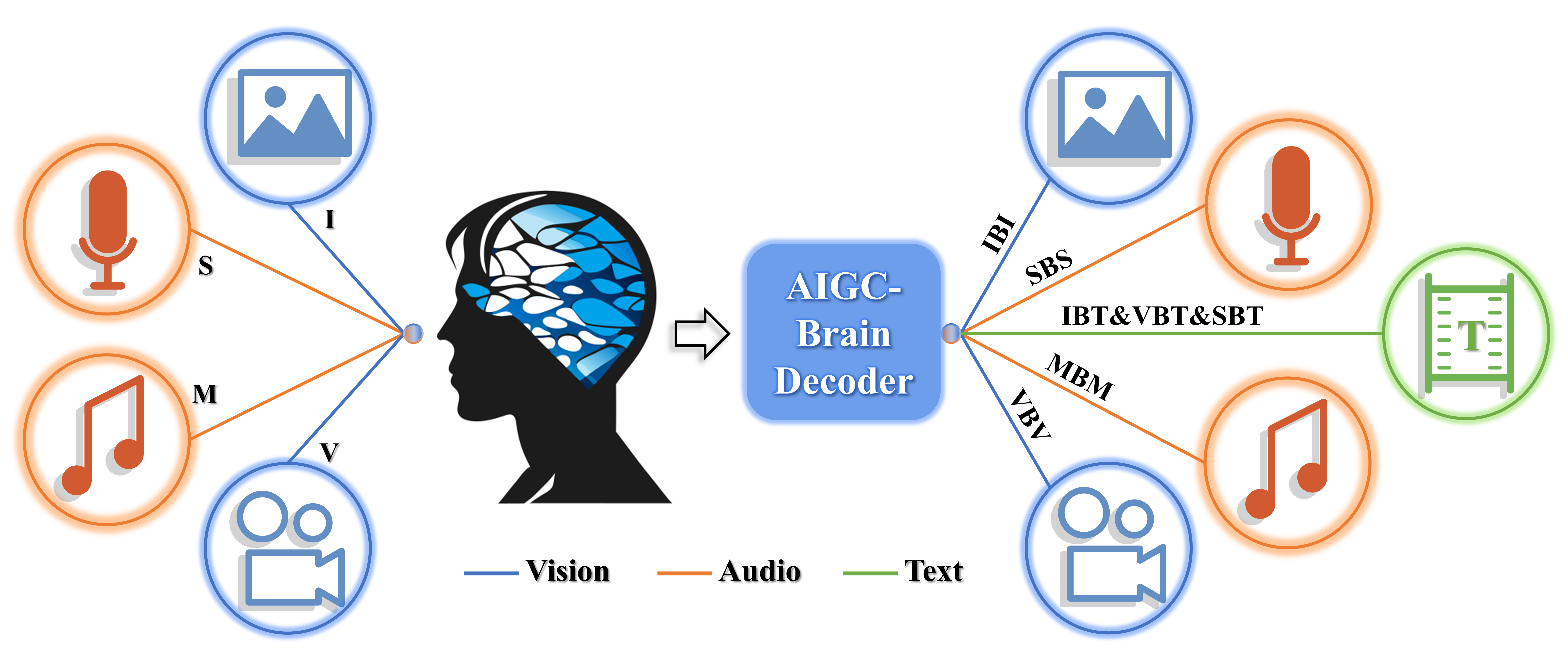Brain-Conditional Multimodal Synthesis: A Survey and Taxonomy
In the era of Artificial Intelligence Generated Content (AIGC), conditional multimodal synthesis technologies (e.g., text-to-image, text-to-video, text-to-audio, etc) are gradually reshaping the natural content in the real world. The key to multimodal synthesis technology is to establish the mapping relationship between different modalities. Brain signals, serving as potential reflections of how the brain interprets external information, exhibit a distinctive One-to-Many correspondence with various external modalities. This correspondence makes brain signals emerge as a promising guiding condition for multimodal content synthesis. Brian-conditional multimodal synthesis refers to decoding brain signals back to perceptual experience, which is crucial for developing practical brain-computer interface systems and unraveling complex mechanisms underlying how the brain perceives and comprehends external stimuli. This survey comprehensively examines the emerging field of AIGC-based Brain-conditional Multimodal Synthesis, termed AIGC-Brain, to delineate the current landscape and future directions. To begin, related brain neuroimaging datasets, functional brain regions, and mainstream generative models are introduced as the foundation of AIGC-Brain decoding and analysis. Next, we provide a comprehensive taxonomy for AIGC-Brain decoding models and present task-specific representative work and detailed implementation strategies to facilitate comparison and in-depth analysis. Quality assessments are then introduced for both qualitative and quantitative evaluation. Finally, this survey explores insights gained, providing current challenges and outlining prospects of AIGC-Brain. Being the inaugural survey in this domain, this paper paves the way for the progress of AIGC-Brain research, offering a foundational overview to guide future work.
PDF Abstract

